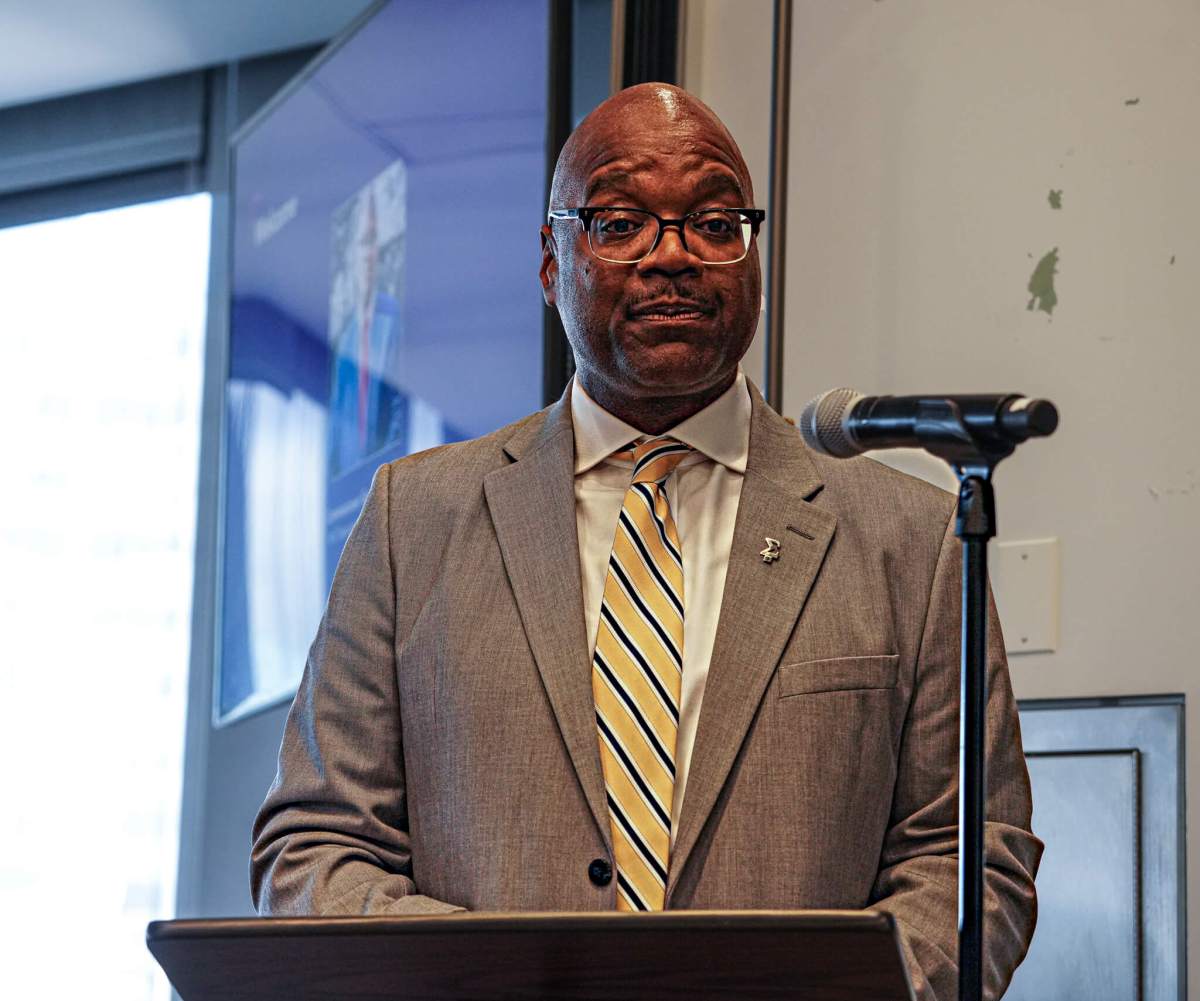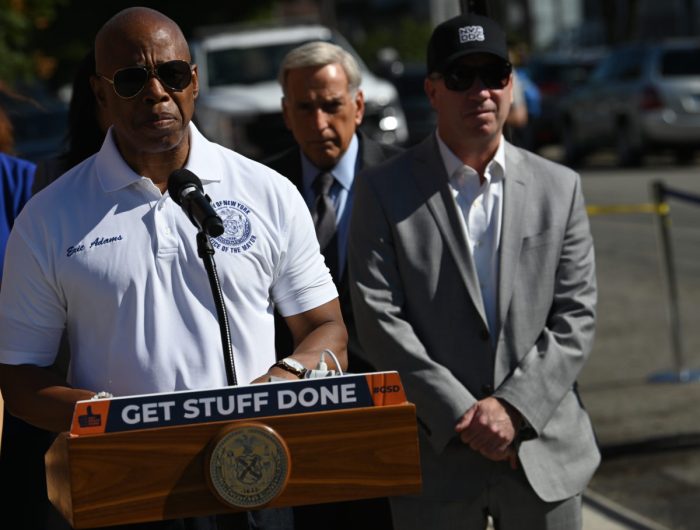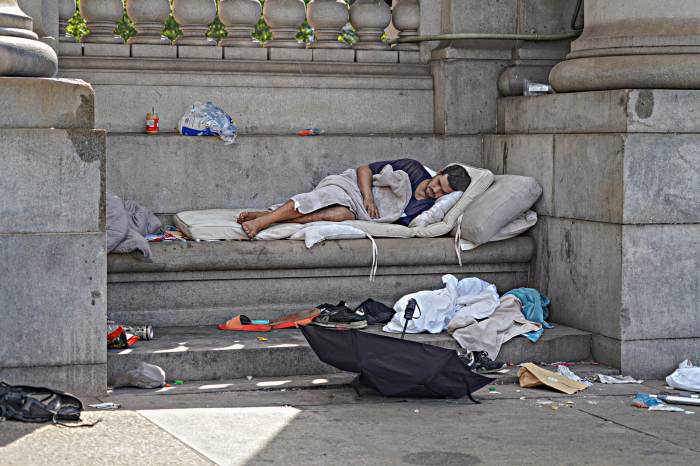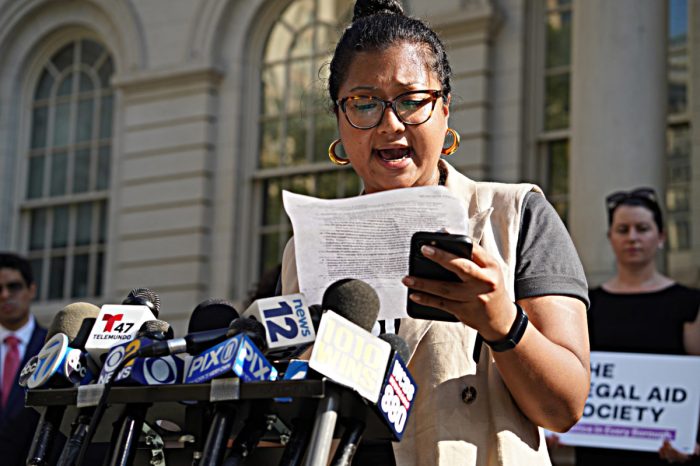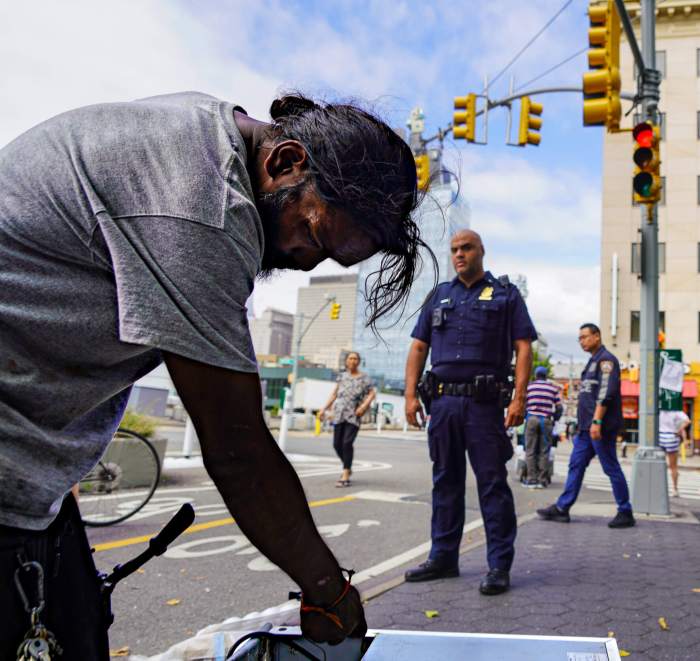Gary Jenkins, the city’s recently departed social services commissioner, has scored a gig working for Mayor Eric Adams’ former chief of staff Frank Carone at his newly launched consulting firm.
Jenkins will begin work at Carone’s lobbying outfit — Oaktree Solutions — as its managing director of social services next Monday, a move first reported by the New York Daily News and Gothamist on Tuesday and confirmed by amNewYork Metro.
“Gary will be joining April 3rd as managing director of social services leading on non-profits and purpose work,” David Meadvin, an advisor to Oaktree, told amNewYork Metro. “Gary has incredible experience and the firm is thrilled to have him.”
Jenkins is starting the new job after ending his 30-plus year stint in city government less than a month ago, on March 3.
“What attracted me to Oaktree was it’s not just local,” he told Gothamist. “This gives me the opportunity to help people across the country.”
Carone left City Hall himself at the start of this year, having served as the mayor’s right hand for just 12 months. He launched Oaktree shortly after departing the administration in January and has already brought on high profile real estate industry clients such as the Durst Organization and SL Green Realty Corporation.
City law bars the former DSS honcho from lobbying the agency he once led for the next two years and he told Gothamist he has no plans to register as a lobbyist in the foreseeable future. Jenkins, however, didn’t rule out lobbying the state, while he’s unable to speak with his old city agency.
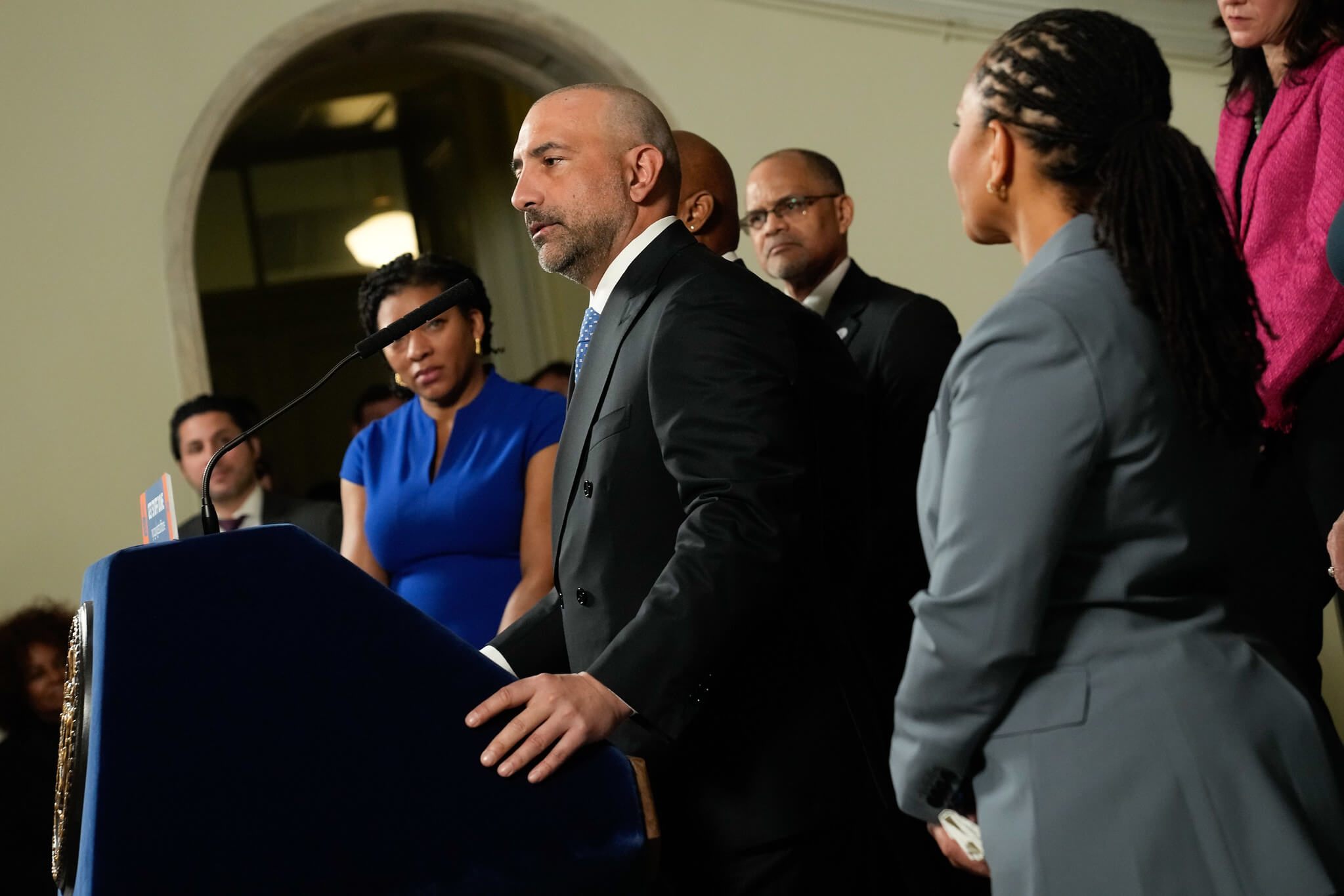
Political consultant Hank Sheinkopf said it makes sense that Carone would hire Jenkins soon after the two left city government, due to Jenkins’ wealth of experience working with homeless New Yorkers.
“Frank Carone has been very successful, historically, before he was in City Hall, and after he left City Hall he will continue to be very successful as an attorney and [a] businessman,” Sheinkopf said. “And Gary Jenkins is an expert on the vexing problem that cities throughout the country and localities seem to be incapable of solving, so it’ll probably present some real opportunities for both of them.”
At the time Jenkins announced his resignation in February, he said he was leaving the Adams administration to “explore other opportunities,” without adding any further detail.
Jenkins stepped down amid the ongoing migrant crisis that has embroiled the city for the past year, which has now seen over 52,000 asylum seekers arrive in Gotham since last April; and the challenge of dealing with the city’s pre-existing struggles to house its homeless population. Yet, he said at the time, he’d already been planning to step down and wasn’t “running away” from the crises.
“This is something I was definitely already planning to do,” he said. “I’m really proud and privileged to serve under Mayor Eric Adams. He’s a phenomenal leader, a caring person, just the epitome of a professional. So no, there’s no discord, there’s no running away.”
Jenkins’ tenure leading DSS, which lasted for just over a year, was marred by a couple of high-profile controversies. He came under fire last summer as the subject of a Department of Investigation probe over DSS allegedly failing to report it had violated the city’s right to shelter law; and for taking a two-week vacation amid the city’s early struggles to house the hundreds of migrants showing up here each day.
Adams fiercely defended Jenkins at the time and released a statement praising him when he resigned last month, particularly for his role in bringing homeless New Yorkers into shelter through the mayor’s Subway Safety Plan.
“Under his leadership, the Department of Social Services invested a historic amount to support unsheltered New Yorkers — bringing and keeping more than 1,100 people living on our subways into shelter as part of our Subway Safety Plan and inviting those with lived experiences to the table to help craft our housing and homelessness plans,” Adams said at the time.



